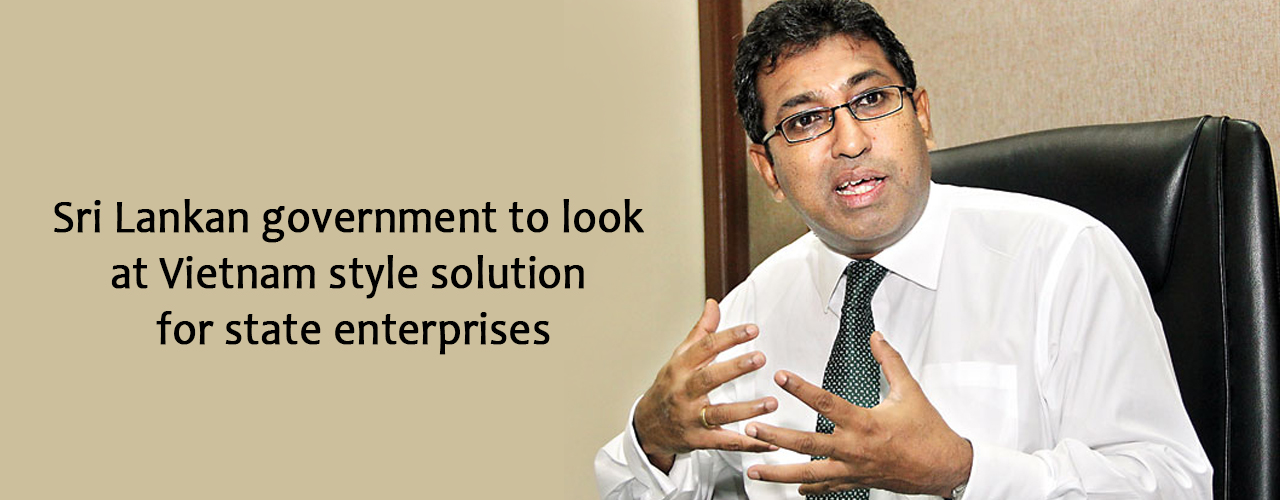Sri Lankan government to look at Vietnam style solution for state enterprises
The government of Sri Lanka is reportedly looking at the possibility of a Vietnam style “equitization” of state enterprises where the public can become shareholders.
“What is the problem with account holders of a state bank holding 10 percent of shares?” Deputy Economic Policy Minister Dr. Harsha De Silva has reportedly made this remark during a business forum in Colombo.
He has explained that similarly customers of an energy utility could hold shares.
He has further noted that the government would sell stakes in small firms like hotels in the stock exchange shortly.
According to a recent news report, socialist countries like Vietnam have been in the forefront of listing small stakes of state firms in the stock market, a process they call ‘equitizing.’
The report states that about 500 firms are slated to be equitized in Vietnam. Heads of loss-making SOEs like Vinashin Shipping and PetroVietnam which expanded rapidly in the run up to a 2008 credit bubble and made losses, have been given the death penalty for mis-management or not watching subsdiaries closely.
It further highlights that lenders like Techcombank have small stakes listed and also strategic investors. In general state companies with small listed stakes have low price to earnings ratios despite showing good performance.
Prices are re-rated upwards as stock is progressively sold down. Early candidates like Vinamilk has been progressively listed in the market with the existing management themselves taking the firms forward, even moving abroad, and becoming foreign investor darlings.
Vietnam started liberalizing late, abandoning state planning from 1984 ‘Doi Moi’ (renewal) program, with getting the state out of agricultural markets, giving people stronger property rights, and inviting foreign investments.
But benefits came to the ordinary people fast as it liberalized trade aggressively in line with ASEAN requirements.
OSL take:
Such a move by the Sri Lankan government would result in an increase in efficiency and productivity of state owned institutions in the country. There have been constant reminders to the government by foreign lending agencies like the International Monetary Fund (IMF) for the restructuring of state enterprises. Hence, a move similar to ‘equitization’ of state enterprises would increase efficiency and productivity, thereby expanding the country’s economy creating more business opportunities.
| Article Code : | VBS/AT/06112017/Z_4 |

